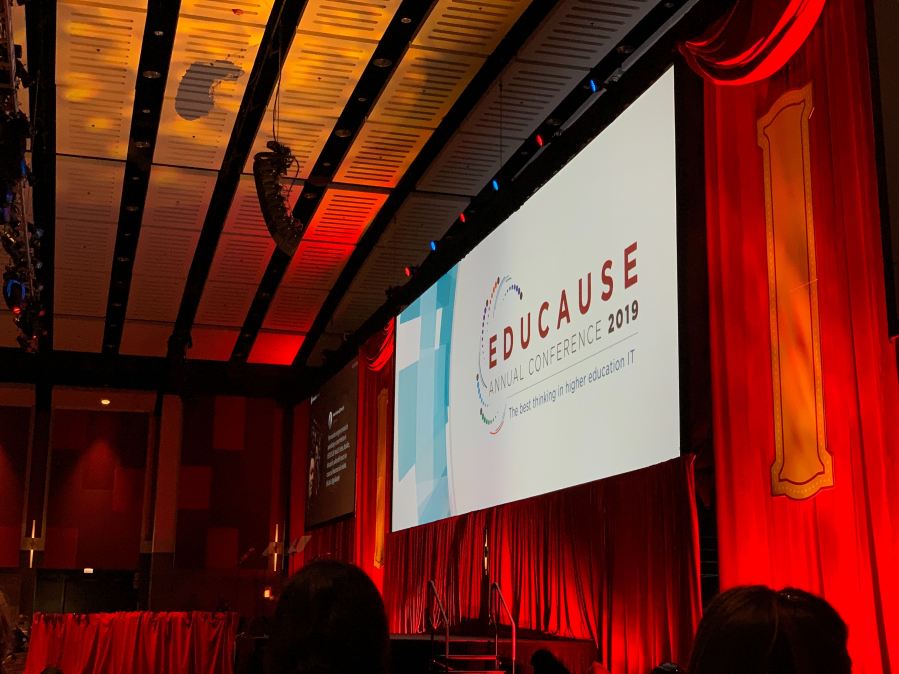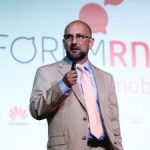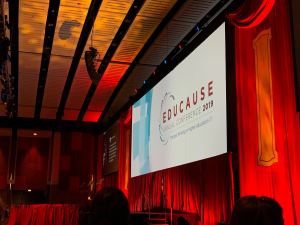Outgoing Educause research director says tech hype never delivered

Over research director D. Christopher Brooks’s eight years at Educause, the higher education IT and online learning research space grew to cut through the hype surrounding new technologies, he told EdScoop in an interview ahead of his last day on Wednesday.
Brooks announced his departure for the market advising firm The Tambellini Group on social media last week. Online learning dramatically changed over Brooks’s run at Educause, from massive open online courses launching around the beginning of his tenure to the coronavirus pandemic causing an industry boom in 2020.

D. Christopher Brooks (LinkedIn)
“We’ve seen more of a focus on evidence-based research and data in decision-making,” he said. “Maybe we’ve moved away a little bit from having folks being susceptible to the hype that gets generated a lot of times around educational technologies.”
Brooks led research for Educause on topics including teaching and learning, infrastructure and research technologies, IT professional services and administrative business services, gathering perspective from the 100,000 individuals in the professional organization. Brooks said during his eight years at Educause, no over-hyped technology came to mind that met its original promise.
“We still see pushes in the space of technologies, like blockchain and AI, as being sort of the next best thing, but I think in many ways, these are technologies in search of a higher ed problem,” he said. “The degree to which we do talk about them in the higher education IT research space within Educause, we’re trying to be very thoughtful about not just hyping it up for for the sake of hyping it up, but we’re trying to think very pragmatically about how those technologies may may influence what’s going on in that space.”
One of the major changes in Educause’s research approach over Brooks’s tenure was the annual Horizon Report methodology in 2019. Brooks said researchers saw the same technologies floating to the top of the report each year. Brooks said Educause switched to a futurist approach for the report, gathering qualitative data on trends in the higher education space and then exploring how technology fits with those trends.
“We were sort of guarding against the kind of the latest and greatest things popping up on the promise of transforming higher ed going forward,” he said. “Instead, we’re looking at this broad set of categories of things related to the social trends, and economic and political and other kinds of kinds of spaces [to] really help us understand the landscape and the context in which these things were developing.”
There are a couple of technology-driven approaches shown to contribute well to learning, Brooks said, such as offering online components to courses through learning management systems and active learning classrooms, where technology assists students in learning through solving problems. Researchers, he added, are beginning to find practical applications of extended reality in instruction as the technology and computing capabilities have evolved over time.
“I think the work that we’ve done within Educause has helped to to temper that desire to chase the new shiny object without really having a lot of evidence that it might do something,” he said.
Brooks said higher education research also changed over his time at Educause to become more student-centered and to address diversity and inclusion issues. One of those issues, he said, is equitable access to devices and broadband as more institutions adopt remote learning.
“Higher education is going to have to figure out how to address [that] going forward, especially if it’s going to support students who are find themselves in a variety of different circumstances,” he said. “We know that students, for example, who work, who are married, who have children, who are women tend to really prefer online courses, because it gives them the flexibility in their schedules in their work days and their family lives to be able to choose those things. But if they’re also in a position of not having a reliable connection or reliable devices that they can use for that they’re really put at a disadvantage.”





